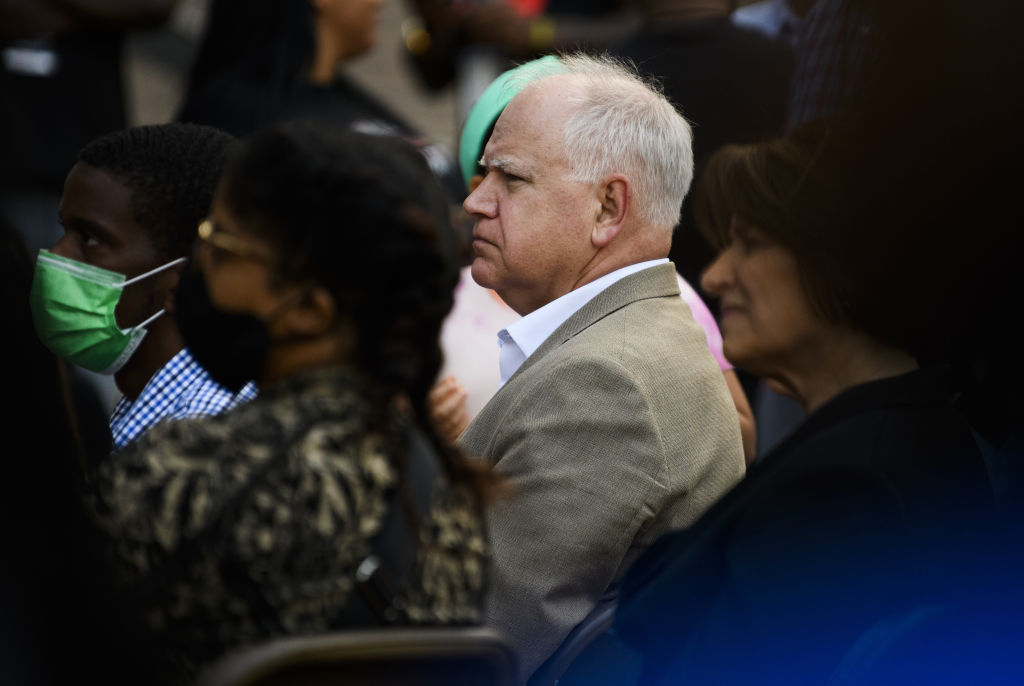With the latest primary results coming in from Connecticut, Minnesota, Vermont, and Wisconsin, yesterday’s voting highlighted a sharp divide between establishment candidates and outsider hopefuls. A number of surprising wins and close calls made for entertaining viewing and perhaps even an early warning for politicians happy to rely on party affiliation to secure election.
The Wisconsin Proxy War
The Republican gubernatorial primary came down to former Lt. Gov. Rebecca Kleefisch – a GOP establishment favorite supported by ex-Vice President Mike Pence – and construction company owner Tim Michels, whom former President Donald Trump backed. Michels took 47.2% of the vote against Kleefisch’s 42%, a lead of more than 35,000 ballots.
Michels will do electoral battle against incumbent Democrat Governor Tony Evers, who is running for his second term. When asked about his preference regarding an opponent, Evers said, “It doesn’t make any difference they have both gone so far off the rails. They’re leapfrogging over each other to become more and more radical around some really important issues to Wisconsinites, such as voting, the right to vote, the right to have reproductive health care for women in the state of Wisconsin.”
The 2018 gubernatorial contest was one of the closest in the nation, with Evers beating GOP nominee Scott Walker by just 29,000 votes (1.1% of the total). In that election, the margin was too close to call until a stack of late absentee ballots from Milwaukee County arrived in which 84% of the votes were cast for Evers.
Another Wisconsin race that had initially garnered headlines was the Democratic Party primary for who would face GOP Senator Ron Johnson. What started as a crowded field eventually petered out to just one major candidate. Lt. Gov. Mandela Barnes is now the official nominee, taking home 77.8% of the vote share.
Latest Primary Results from Minnesota

Minnesota Governor Tim Walz (Photo by Stephen Maturen/Getty Images)
A special election was held in Minnesota’s 1st District to decide who would serve the remainder of Republican Rep. Jim Hagedorn’s term after he died of cancer in February. The contest between Republican state Rep. Brad Finstad and Democrat Jeff Ettinger ended with a victory for the GOP candidate, with 51% opting for the Republican. However, with Hagedorn’s term ending in November, both contenders will go head-to-head once again later this year, next time competing for a full term in the House.
The GOP Minnesota gubernatorial primary was one of the most closely watched in the country. Incumbent Democrat Governor Tim Walz is running for a second term in a state that has not elected a Republican to the mansion since 2006. Taking home the primary win for the opportunity to do battle with Walz is Dr. Scott Jensen, who cruised to victory with an impressive 89.3% of the vote against two other contenders.
Jensen is the prototypical political outsider despite being a former state senator. As a medical doctor, he railed against COVID lockdowns, mass vaccination programs, is staunchly pro-life, and is a harsh critic of the incumbent governor’s approach to crime and riots. Speculative polling suggests that Walz would have the most difficult time against Jensen out of all the potential GOP candidates. With Walz’s approval rating underwater, this will be a November contest to watch.
Diminishing Squad Support
Controversial Squad member Rep. Ilhan Omar (D) had a close call in her primary to continue representing Minnesota’s 5th Congressional District. Securing 50.4% of the vote against challenger Don Samuels’ 48.2%, the incumbent Omar held on to her position by less than 2,500 votes. Samuels campaigned as a pro-police candidate offering a more centrist alternative.
Of concern for Omar is not only the closeness of the contest but also her diminishing support in the district. In the primary for 2020, she racked up more than 90,000 votes; this time around, she secured less than 58,000, perhaps signaling a lack of enthusiasm among Democrat voters. In fact, this latest tally is also thousands less than she won in the 2018 off-year primary.
Connecticut Calling
 The GOP primary for the chance to face Senator Richard Blumenthal (D) was a test of the Trump endorsement power. The GOP establishment went all-in on former state House Minority Leader Themis Klarides, who has said she did not vote for Trump in 2020. The former president chose to back his original pick for the position of US ambassador to Chile, Leora Levy. Levy topped her primary ten points clear (50%) of Klarides. However, despite the endorsement, the seat remains uncompetitive. Connecticut has not elected a GOP senator since Lowell Weicker – a “Rockefeller Republican” – in 1982.
The GOP primary for the chance to face Senator Richard Blumenthal (D) was a test of the Trump endorsement power. The GOP establishment went all-in on former state House Minority Leader Themis Klarides, who has said she did not vote for Trump in 2020. The former president chose to back his original pick for the position of US ambassador to Chile, Leora Levy. Levy topped her primary ten points clear (50%) of Klarides. However, despite the endorsement, the seat remains uncompetitive. Connecticut has not elected a GOP senator since Lowell Weicker – a “Rockefeller Republican” – in 1982.
Republican businessman Bob Stefanowski won the gubernatorial primary unopposed and is headed for a rematch against incumbent Democratic Gov. Ned Lamont. Stefanowski lost to Lamont in 2018 by 3.2%, roughly 45,000 votes.
The View from Vermont
The congressional seat left open by Democratic Rep. Peter Welch has received significant media attention. Welch is running to fill retiring Sen. Patrick Leahy’s Senate seat, which means the 1st District is wide open. The Vermont representative cruised to an easy win with 84.9% of the vote share. His challenger will be Gerald Malloy, who is a political newcomer. He won his primary against establishment candidate Christina Nolan by just over 4%.
A Washington State Update
The counting is finally done in Washington State’s 3rd Congressional District. Although the primary took place on August 2, counting continued until yesterday. Incumbent Rep. Jaime Herrera Beutler lost her opportunity to continue in the role to Trump-endorsed Joe Kent. Beutler was one of ten Republicans who voted to impeach Trump; she is the third of whom to lose a primary race this year.




